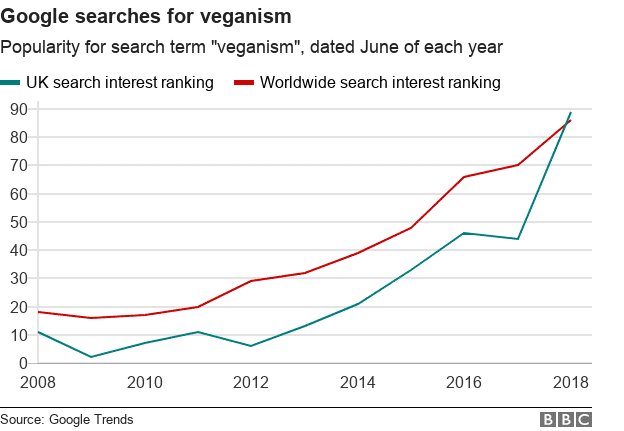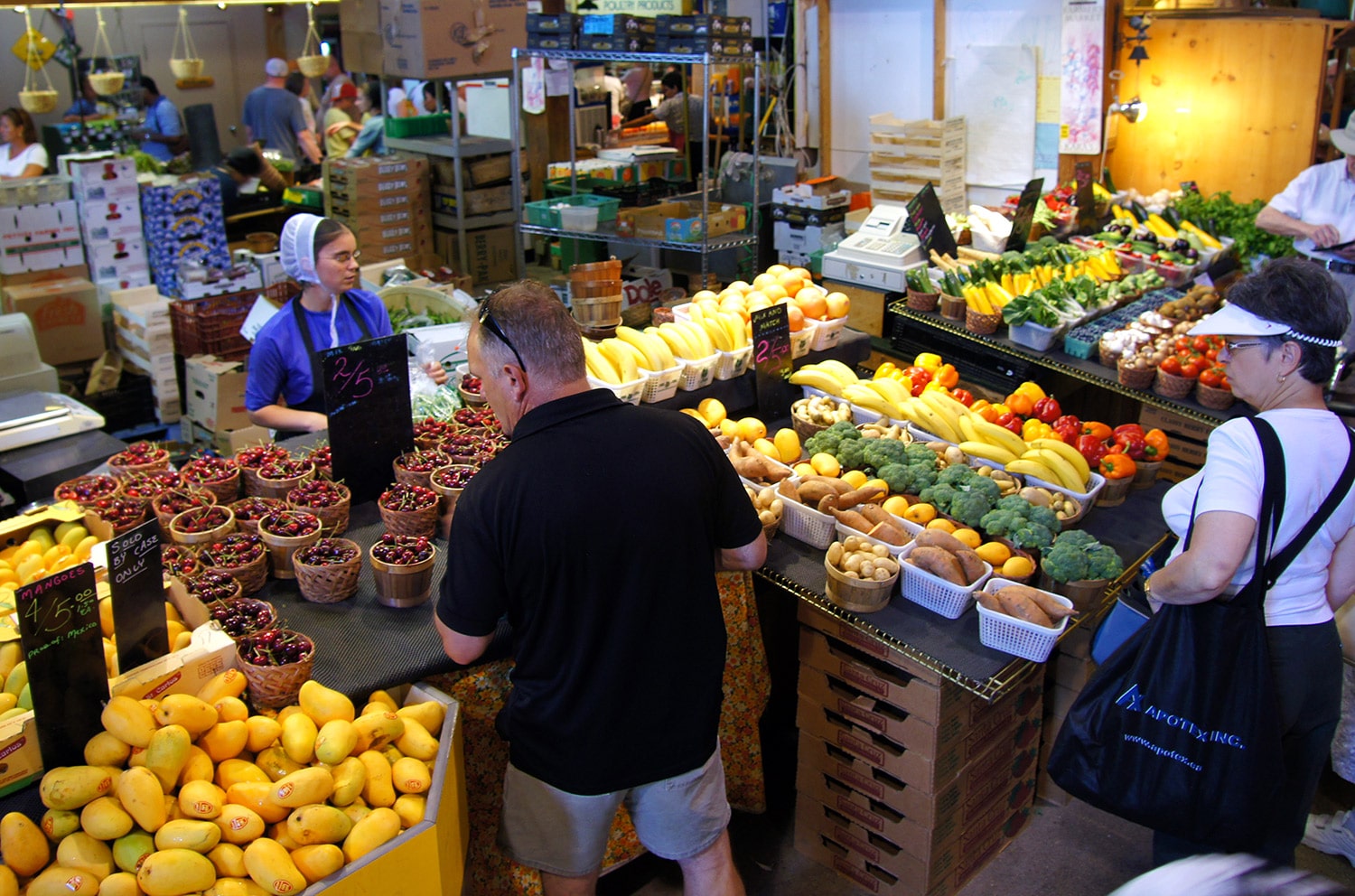Revolution comes in all shapes and sizes. We had the steam engine, the silicone chip, and the world wide web, all changing the way we live our lives. And now is the story of veganism.
Today, a new change is sweeping the nation, and indeed the planet.
While it may not be new in itself, it’s increase as of late is unprecedented. It is one not of technology, but of values and morals. Introducing, the vegan.
In the UK alone, the number of vegans has increased by a staggering 360 percent since 2006, equating for over 542,000 people, over one percent of the entire population.
In the US, over two and a half percent of the nation’s people have adopted a plant-based diet, and that number continues to rise.
A survey conducted by Ipsos Mori commissioned by the Vegan Society shows veganism as one of the UK’s fastest-growing lifestyle movements.

People’s reasons for becoming vegan vary. Many advocate a plant-based diet for the variety of health benefits including lower blood pressure and cholesterol, lower body mass index and a substantially reduced risk of heart disease and cancer.
Many will also choose to be vegan for environmental reasons, such as water consumption and rain forest depletion, as well as animal welfare issues and factory farming.
Some act collectively to promote a healthier sense of being, physically and emotionally.
Many celebrities have also spoken publicly of their vegan lifestyle, including; singers Sia, Ariana Grande, Millie Cyrus, Ellie Goulding and Stevie Wonder, music producer Moby, rapper RZA, stars on-screen Joaquin Phoenix (the voice of Earthlings), Alica Silverstone and Pamela Anderson, former boxer Mike Tyson and many leading sporting professionals, notably the US weightlifter Kendrick Farris representing his nation in the Rio Olympics.
As a marketer what is very interesting is that close to half (forty-two percent) of vegans in the UK are between the ages of 15 and 34 years of age, compared to the fourteen percent being over the age 65 years.
The poll also notes that a remarkable eighty-eight percent of vegans live in urban areas with over a quarter of those surveyed being based in London.
Take into account the vast amounts of meat-product advertising in the cities (fast food, supermarkets etc), an overwhelming majority of the vegans accounted for were from urban areas, especially the capital.
Also, when we bare witness to these glossed meat commercials both print and screen, we’re led to believe the majority of the younger generations are convenience-led junk food eaters, yet this couldn’t be further from the truth.
So what’s happening?
At the heart of the vegan revolution is the internet, especially social platforms such as Facebook, Snapchat and Instagram.
Something as simple as a ‘MeMe‘ image with either a comical or thought provoking statement on veganism can go viral worldwide in no time at all.
There are also many people sharing recipes and images of their homegrown produce on social media platforms.
There are countless blogs and social sites where people can share their opinions, give advice and converse, sharing such ideals and collectively answering any questions that arise.
The phenomenon of social media is essentially a web of conversations, and as the popular idiom suggests, there’s nothing more powerful in marketing than the word of mouth. However, the majority of marketers would agree that the most effective medium is video, especially YouTube.
Perhaps contributing to the decline in television among millennials, YouTube has informed, educated and entertained many with content specific viewing.
The principle is anyone can upload and share content, and in the sphere of veganism, thousands of uploads include online vegan chefs, video bloggers, bodybuilders, nutritionists and many animal rights campaigners, who’s undercover footage show an alternative perspective to what is shown in the mainstream media.
One that springs to mind is Glass Walls as narrated by Sir Paul McCartney. These expose style films themselves deliver an intense blow to the integrity of various companies, and the controversial use of marketing as a false light.
For certain the veil has been lifted, but notably the fictitious stereotype of the vegan has been broken.
To so-called thin, hippy-like image conforming to a restrictive diet has been shattered and instead seen in an educated perspective as a healthy, affordable and ethical choice adopted by many.
Arguments such as vitamin and protein deficiencies of a vegan diet have also been proven inaccurate.
Nowadays, when one walks onto the dairy aisle in any supermarket, they are met with many milk alternatives.
Many food and retail businesses, high street and online, have benefited from the increase in veganism, and others are quickly changing their attitudes towards it.
Sandwich chain Pret-A-Manger launched a month long vegan and vegetarian only experiment with great success, with plans to roll out the concept to other chains.
So what does the future hold, and what is the connection with branding and marketing?

I for one feel that the increase in veganism is not a passing zeitgeist, but instead a sign of the times to come, a move towards conscious, sustainable and compassionate choices, clear that change and a new way of being is on the horizon.
To paraphrase Seth Godin, we are now experiencing the age of innovation, and while perhaps being vegan is nothing new it is by all means a positive change.
What brands must realise is that with YouTube, social media and the internet as a whole, there really is nowhere to hide.
Whether it is unhealthy ingredients, carcinogenic chemicals or animal abuse, no amount of marketing gloss or spin will ever cover it up.
People demand and indeed deserve the truth, sincerity and positive contribution from their chosen brands.
Companies such as McDonalds, KFC, and Burger King have been at the centre of many controversies.
While veganism may not be the only reason for their decline in sales, it certainly delivers a blow to their business operations.
While some make attempts to shed their unhealthy image and even adopt vegan and vegetarian choices, with some particular brands there is likely too much water under the bridge.
While some may think that these brands will be around forever, the same was said about firms like HMV, Our Price, Blockbuster and Andy’s Records before the advent of the MP3, digital movies and of course piracy.
While HMV may still be hanging by a thread, it bares the scars of changes in consumer habits, something no company should take for granted.
While technology has assisted with this ethical and spiritual development, it is clear that morality and consciousness plays a substantial role in our choices and overall cultural shifts.
If there’s one piece of advice I could share with all businesses and brands, it is that when you talk the talk, you had better be ready to walk the walk.





